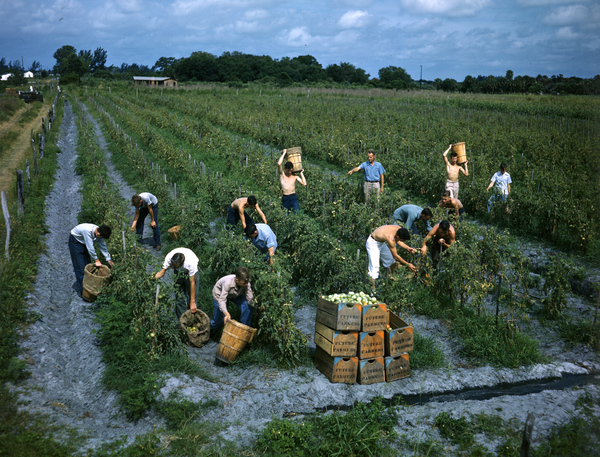
“[A]s the top U.S. watermelon-producing state prepares for harvest, Reuters reports, “many of the workers needed to collect the crop are stuck in Mexico …. Without the workers crops could rot in fields throughout the country,” starting in Florida and California where major harvests begin in April and May.
As you can probably guess, the problem stems from the COVID-19 panic. The US State Department has halted routine visa applications and consulates are limiting both staff numbers and staff contact with applicants. That’s making it difficult for the quarter million migrant workers who normally pick America’s crops to get here and get to work.
Most Americans aren’t hungry. Yet.
But unless something changes, we’re going to start GETTING hungry in a couple of months.
And by then, it will be too late. Planting cycles don’t turn on a dime for our convenience and ripe crops don’t wait. They get picked when it’s their time, or they go to waste. We get the food while the gettin’s good, or we don’t get it at all.
There’s a non-trivial chance that Americans are rushing headlong into a horror we haven’t seen since the Civil War — mass starvation — or, at the very least, malnutrition on a scale we haven’t suffered since the Great Depression.
We can’t avoid that outcome with stimulus checks in our mailboxes. All the money in the world won’t buy you a cantaloupe if there aren’t any cantaloupes to buy.
We can’t hold it off with corporate bailouts, either. It’s not money Big Agriculture’s lacking for, it’s permission for its workers to come pick the crops.
If we want to keep eating, our politicians are going to have to knock off this “shutdown” nonsense and let people get back to work.
Yes, even if that means that COVID-19 remains a problem or becomes a bigger problem.
The varying probabilities of catching the disease, and the varying probabilities of dying from it, pale next to the absolute, indubitable, 100% certainty that if we do not eat, we WILL die.
Politicians can’t just shut down major parts of an economy at will, start them back up, and expect things to go well. They can’t throttle the food supply chain without consequences.
We gotta eat.
Which means we’re going to have to insist that the politicians hang their Mussolini costumes back up in the closet and magnanimously permit us to get back to our lives.
Thomas L. Knapp (Twitter: @thomaslknapp) is director and senior news analyst at the William Lloyd Garrison Center for Libertarian Advocacy Journalism (thegarrisoncenter.org). He lives and works in north central Florida.
PUBLICATION/CITATION HISTORY


